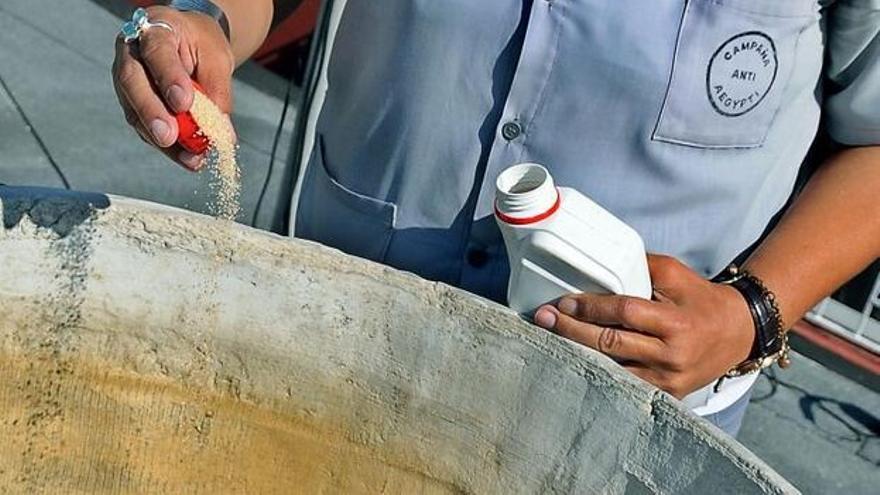
![]() 14ymedio, Havana, 24 June 2023 — The dengue fever situation in Guantánamo is “in the prelude to the epidemic phase,” the authorities warn in the local press. With a 30% increase in outbreaks of contagion, the level of alarm in the Provincial Center for Hygiene, Epidemiology and Microbiology has now been raised. The director, Leonel Heredia, blames the upturn on the rainy season and foresees an even darker outlook when September arrives.
14ymedio, Havana, 24 June 2023 — The dengue fever situation in Guantánamo is “in the prelude to the epidemic phase,” the authorities warn in the local press. With a 30% increase in outbreaks of contagion, the level of alarm in the Provincial Center for Hygiene, Epidemiology and Microbiology has now been raised. The director, Leonel Heredia, blames the upturn on the rainy season and foresees an even darker outlook when September arrives.
Guantánamo now registers, in 548 homes, 705 outbreaks of the Aedes aegypti mosquito, the transmitting agent of dengue, Zika, chikungunya and yellow fever. The municipalities most affected so far are Manuel Tames, Guantánamo and Caimanera, while Maisí and Yateras show the lowest rates of infections, according to Heredia. The situation is analogous to that of Santiago de Cuba, where the authorities already describe the development of the disease as “worrying.”
The water tanks in the homes are still the “favorite” place for the proliferation of the vector, Heredia said, and his office has developed an “intensive” plan to control the reproduction of the mosquito, although he considered that families have to do their part with the cleaning of stagnant waters.
As soon as the rainy season began, Santiago de Cuba issued an alarm about the increase in medical care due to febrile syndrome and reactive cases. The provincial newspaper Sierra Maestra warned that the territory had “great possibilities” of moving towards epidemiological events of not controlling the viral infection.
“It is expected that in the coming weeks suspected cases of dengue will continue to appear,” the newspaper warned, also acknowledging that the control of the disease “has slowed” due to the economic difficulties of the Island, which limit “the size and scope of anti-vector and other actions aimed at eliminating environmental conditions favorable to the insect.”
Last February, BioCubaFarma announced that for this year it expects to have the first vaccine candidate against dengue, after almost a decade of research. Cuba began the studies in 2013, but Eduardo Martínez Díaz, president of the state pharmaceutical group, justifies the delay by claiming that “it is a complex process,” because dengue has four serotypes and each one must be immunized at the same time for the drug to be effective.
The Government publicizes that Cuba will have the first vaccine against the disease, but in reality in 2015, the World Health Organization (WHO) approved a drug with the trade name of Dengvaxia, manufactured by the French Sanofi Pasteur. This serum has been validated in 20 countries but is not available on the Island.
The Guantánamo health authorities also warned of an uptick in COVID-19 infections, with 10 confirmed cases in the last two weeks in the municipalities of Guantánamo, El Salvador and Manuel Tames. Although they said that the patients were not in serious condition or at risk of death, the epidemiologist insisted on using masks at mandatory sites and continuing the vaccination schedule.
Translated by Regina Anavy
____________
COLLABORATE WITH OUR WORK: The 14ymedio team is committed to practicing serious journalism that reflects Cuba’s reality in all its depth. Thank you for joining us on this long journey. We invite you to continue supporting us by becoming a member of 14ymedio now. Together we can continue transforming journalism in Cuba.
